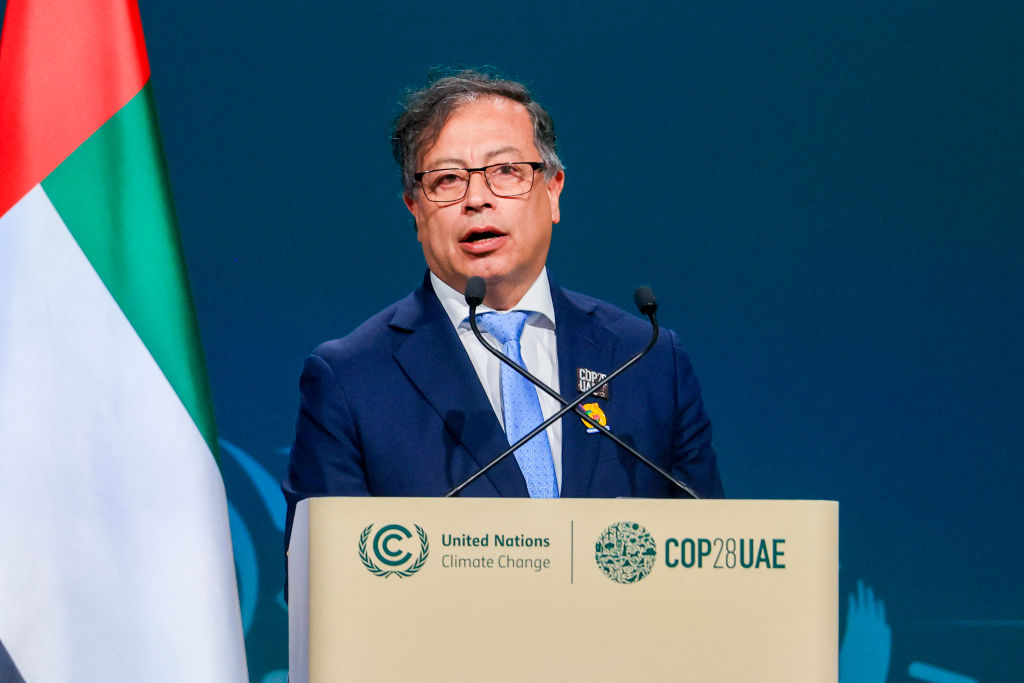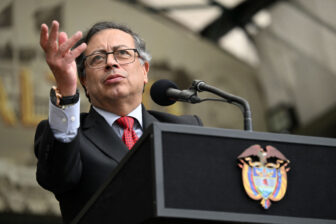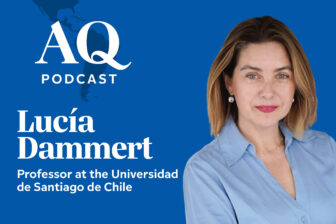PARIS — One of the largest summits ever held in Colombia will take place in October: the United Nations COP16 Biodiversity Conference. While the nation’s outstanding biodiversity will be in the spotlight as global authorities discuss problems and their solutions at this gathering, so will President Gustavo Petro’s conflicting environmental actions. Promising to phase out fossil fuel production, his administration has nevertheless underfunded agencies instrumental to protecting nature.
There is no doubt that the government has a genuine interest in the environment, but there is considerable distance between the Petro administration’s big statements and the reality on the ground. Despite the consensus on the need to strengthen research on biodiversity and the country’s ecosystem, the 2023 budget allocation for the environmental sector fell by 15% compared to 2022 when adjusted for inflation. What’s more, in 2024 the Ministry of Science, Technology and Innovation, which is meant to finance scientific projects, will have one of the lowest budgets out of all ministries after funding was cut by 18% compared to last year.
For years, the state-run Natural Sciences Institute in Bogotá has housed collections of unique flora and fauna, and even after warnings from researchers and government officials, the institute is falling apart, putting at risk the 3.5 million specimens it houses. Institutes in charge of environmental research, such as the Institute of Hydrology, Meteorology and Environmental Studies (IDEAM), depend on international donors for funding. Plans to build a controversial facility on the Gorgona Island National Park, dating back to the Juan Manuel Santos administration, appear to be moving forward despite environmentalist opposition. Originally planned as a U.S.-funded coast guard station and pier, the Petro government has downplayed the project, noting that a radar will be installed to control illegal fishing.
Biodiversity under threat
Colombia lacks sufficient funding to protect its biodiversity and faces major threats to its splendid natural wealth: illegal wildlife trafficking, legal and illegal industries (logging, cattle ranching, and mining), as well as urbanization, infrastructure projects, land use change, and fires. Few know that in 2022 Colombia had some of the world’s highest levels of primary forest loss, that 1,302 species are under some degree of threat, and that Colombia is among the top five countries with the most endangered species.
Colombian biologists and environmentalists have warned about this. They do the important work of monitoring and criticizing harmful environmental laws and working with communities. On the ground, activists are also mobilizing. Vice President Francia Márquez comes from a social movement that opposed mining and the construction of a dam in Cauca province, in the southwestern part of the country. Defending the environment has cost the lives of many in Colombia, which accounted for a third of the world’s recorded killings of environmental and land defenders in 2022.
The country has signed agreements to protect biodiversity and has had a national biodiversity policy in place since the 1990s. Concerns often focus on the preservation of the Amazon biome, where 65% of Colombia’s deforestation occurs. There was positive news on that front in 2023, as deforestation in the Amazon decreased through the third quarter. However, experts point out that abundant rain and armed groups that exert control in the area made fires and logging more difficult. This year may tell a different story: By the end of January, more than 40,000 hectares of forest were burned, according to FCDS, a local NGO that promotes conservation and sustainable development in the Colombian Amazon.
Petro’s climate change agenda
Are these the kind of discussions that will dominate COP16? Or is there another agenda at play? Public documents have not yet been released, but we know Petro’s priorities. He frequently emphasizes climate change when addressing international audiences. During an address at the UN in April 2023, he stated that if oil is taken out of the earth, humanity will perish.
Petro has made decarbonization one of his signature policies, but the truth is that Colombia is not a major greenhouse gas emitter. Coal and oil exports account for most of its foreign trade, but it is not a big player in those fields. Colombia’s crude oil reserves pale in comparison to neighboring Venezuela’s (2 billion barrels compared to 304 billion barrels); at the regional level, it was even recently overtaken by Argentina. In terms of global carbon dioxide emissions, Colombia’s footprint is negligible: It contributes just 0.27%, compared to 30.7% for China and 13.6% for the United States.
Nevertheless, Petro has stressed the need to curb hydrocarbon production. This decision, although virtuous in an ideal, decarbonized world, reduces government revenues, which are essential for investment and social programs. Halting fossil fuel exploration, just as economic growth has stagnated (GDP grew by just 0.6% in 2023), and the manufacturing industry and construction sectors are not doing well, risks further damage to the economy.
Although clean energy production has increased, and energy from water sources covers 72% of the country’s electricity needs, Colombia still depends heavily on fossil fuels. These accounted for 75% of the country’s total energy supply in 2022. Furthermore, the Petro administration has decided to import gas from Venezuela starting this year. Opponents have described this move as an attack on Colombia’s energy self-sufficiency that involves negotiating with an authoritarian government and does not reduce the global carbon footprint.
The COP16 opportunity
As of now, there is a chance that COP16 will just be a platform for a president with the ambition to be a global voice on environmentalism. So what are concrete steps Colombia can take to seize this historic opportunity?
There is a lot of work to be done to combat deforestation and defend Colombia’s biodiversity, and it requires organization and administrative rationality, instead of the “institutional chaos” that some experts have denounced. The Petro administration should consider reorganizing the budget distribution system, since there is opacity about where carbon tax revenues are going.
Many state entities have been criticized for failing to properly spend the funds they have been allocated. Clearer priorities, stronger oversight, and an improved capacity to use the resources already at the state’s disposal would make a big difference for Colombia’s environmental policy.
Can the Petro administration reconcile its contradictions when it comes to the environment? Will the COP16 summit, with 200 countries invited, be an opportunity for Colombia to seriously protect its marvelous biodiversity? Let’s hope so.
__
González is a researcher at Paris Diderot University








